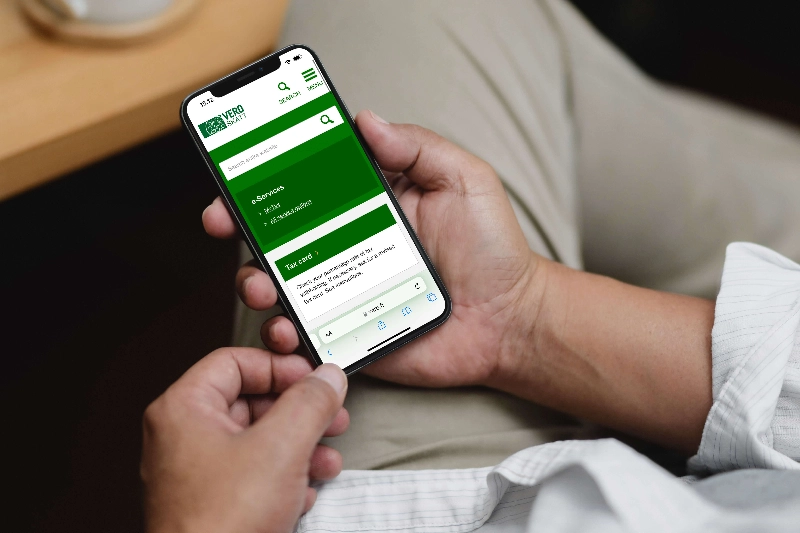The clear majority of Finnish taxpayers feel that they get a good return for their money. In fact, it might just be the biggest reason for Finland’s consistent ranking as the happiest country in the world. So, how does the country’s much-lauded system work?
In Finland, taxes are paid on both earned and capital income. Earned income includes your salary and any taxable social benefits, such as unemployment and parental leave, while capital income is generated through the possession of personal wealth, including rental income or earnings from the sale of any assets.
If you plan to move to Finland for long-term work, expect to pay earned income tax on your salary. These taxes are progressive, meaning the more money you earn, the more taxes you’ll pay. Finland’s progressive tax system has been in place since 1920, and it’s one of the cornerstones of the Nordic welfare state.
Taxes and personal finances

Cottonbro / Pexels
Eight out of ten Finns say they get a good return on their taxes.
Here’s an overview of the Finnish tax system – including a tool for determining how much you’ll pay – as well as a few steps to take when setting up a bank account.
How does the Finnish tax system work?
How much tax do you pay in Finland?
Finnish income tax rates for your salary range determine how much money you’ll pay in taxes. These rates apply to each individual person’s income, so your spouse’s or partner’s income will not affect your personal tax percentage. To estimate how much income tax you’ll pay, use this tax percentage calculator. You can also visit the Finnish Tax Administration’s website for more information.
Taxes on capital income are simpler. These are set to 30% unless the sum of your assets exceeds 30,000 euros, in which case you’ll pay 34%.
What will you get in return for paying taxes?
Tax money goes towards things like creating and repairing infrastructure, ensuring affordable healthcare, and providing free education from elementary school to university. In essence, taxes are the backbone of the social welfare state, contributing to Finland’s safety, stability, and status as the world’s happiest country.

Credits: Police of Finland
The work of the police is appreciated in Finland – over 90 % of the people trust the police a lot or a fair amount.

Credits: HUS
Finns value what they get from society and are happy to pay taxes – for example, to receive top-notch health care services.
What does the annual tax cycle look like?
Finland’s tax cycle is simple and largely automated. Each spring, the Tax Administration automatically calculates whether you paid the right amount of taxes and sends you a pre-completed tax return. If it’s correct, you’re already done. But if you paid too much, you’ll receive a tax return in the form of a deposit to your bank account. If you paid too little, the tax authorities will create a plan to help you pay the remaining tax.
One thing to note: Your employer will automatically withhold the designated percentage of taxes from your salary and pass it on to the tax authorities. In order for them to do so, they’ll need your tax card and bank account number.

Credits: Vero & Work in Finland
Less hassle, more flexibility. In Finland, you can take care of your tax matters and use tax services conveniently online.
Banking in Finland
How do you open a bank account?
Finland’s biggest banks are OP, Nordea, and Danske, but others include Säästöpankki, Aktia, S-Pankki, POP, and Ålandsbanken. To determine which bank is right for you, compare rates and services online.
Once you’ve picked a bank, give them a call or contact them online to set up an in-person appointment. Be sure to bring an official identity document, such as a passport or foreign identity card, with you to your face-to-face appointment, and be prepared to provide the following information:
- Your full name and personal identity code (read this information from Migri to learn more)
- Your address in Finland or abroad
- Your address in any other country where you pay taxes
- A list of other people who are entitled to use your bank account, such as your spouse or partner
It’s worth mentioning that opening a bank account in an EU country like Finland isn’t as simple as you’d think. At the bank, they’ll likely ask you the purpose and intent of opening an account, check your credit history, and request documented proof of your income and assets. While the process can feel cumbersome, it’s necessary – Finland, like many other countries, is fighting an uphill battle against money laundering.
What are banking services like in Finland?
After your initial visit to the bank to set up an account, you can mostly handle your banking online – in fact, most Finns rely entirely on digital banking services for things like paying bills.
And did you know that online banking logins are considered a strong form of identification in Finland? Your bank will provide you with online banking credentials, which will then be used for access to numerous public services, including taxes, social services, healthcare, and more.

Credits: Ketut Subiyanto / Pexels
Online banking is the way to go in Finland – you can even apply for loans like a mortgage using banks’ digital services.
You might also want to know




